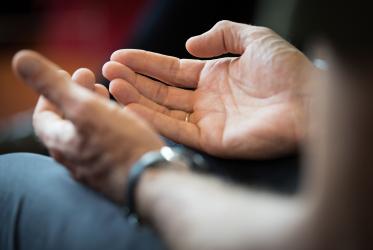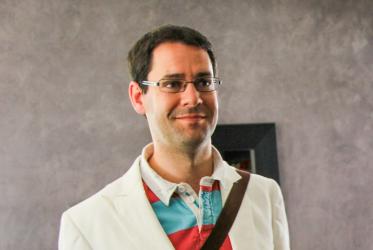Displaying 1 - 13 of 13
06 September 2022
A faith-based, holistic approach to HIV and AIDS-care
13 March 2019
Voices of faith speaking to voices of fear
03 February 2016
WCC/UN conference calls for coordinated action on refugee crisis
20 January 2016
“European solidarity must be strengthened”
29 October 2015
Local and global work saves lives
22 October 2015
WCC urges responsibility for and support to the refugees in Europe
04 September 2015






